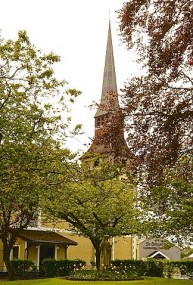Reflection 26th Sunday in Ordinary Time
Reflection on the Gospel-26th Sunday in Ordinary Time C
Veronica Lawson RSM
As we celebrate the fourth week in the Season of Creation, we might ponder again the ways in which Earth cares for us. Vineyards have provided nourishment for countless families in the ancient Mediterranean world since about 10,000 BCE. It is not surprising then that the biblical record frequently references vines and vineyards and that the vineyard becomes a metaphor for God’s “workplace”. In today’s gospel, Jesus tells the story of a father who sends his sons to work in the vineyard. One refuses and then reconsiders: he has the courage to change his mind and engage in life. The second son agrees then fails to do as his father requests: he is not prepared to make his contribution to family life and wellbeing. These siblings find their counterparts in every age. There are those who make an art form of saying yes and failing to follow through with action: such people can seriously undermine the most worthy of projects or plans. And then there are the slow starters, those who take time but eventually come on board. Jesus’ parable is a response to the Temple authorities who are angered by the “amazing things” he does and by the public recognition he receives from the children in the temple. Like the second son, the chief priests and elders profess to do the will of God, but their actions belie their words. Jesus spells out the meaning of the parable as it relates to the disjunction between what they say and what they do. They have rejected the prophet John who came to them “in the way of righteousness”. The tax collectors and prostitutes, “sinners” from the perspective of the authorities, accepted John’s message, albeit belatedly like the first son, and are making their way into God’s empire ahead of the guardians of the religious institutions.
Changing one’s mind is seen as a sign of weakness in our society. For evidence of this, one has only to listen to the taunts in parliament when a political leader changes course in the light of new information. Changing one’s mind or one’s course of action can be an act of great courage and humility, even heroism. This is particularly so if it involves abandoning a self-serving direction for the sake of justice or compassion or the “common good”. We have the example of those who refused to politicize the pandemic and chose rather to work for the common good across political affiliations: some have paid a heavy price. Voluntary changes in behaviour come from a change of heart, from what the gospel calls “metanoia”. There is always a cost in the pursuit of justice, generally less dramatic than the cost to some in public office who challenge the refusal to act on the climate crisis. Today’s parable invites us to bring our actions into line with what we profess, no matter the cost. That is what it means to take up the challenge of working in the vineyard.

